-
Posts
90,902 -
Joined
-
Last visited
Content Type
Profiles
Blogs
Forums
American Weather
Media Demo
Store
Gallery
Posts posted by ORH_wxman
-
-
4 minutes ago, Typhoon Tip said:
This was a pretty classic dynamic spring blue beauty. The sounding was very isothermal below the growth level ...right around +.1C ha... seriously though, a little bit of aggy action suspending through that was going to drill the surface to the freezing point. We were 32.4 here with 3.5" ...settling immediately to 2 by midday and now grass blades are poking through.
Yeah kind of a positive spring bust of yore…interestingly, guidance was generally more aggressive earlier in the overnight period but that part kind of failed. But then we got that blob of monster omega around 5am and things went gangbusters for roughly 2-3 hours and that’s when 90% of the accumulation happened.
-
1 hour ago, SouthCoastMA said:
I bet Watatic had 10+ too. That's a fun trek in the fall
Yeah Ashburnham had 9” so top of Watatic likely broke double digits.
-
 2
2
-
-
20 minutes ago, Cyclone-68 said:
7.5 in Holden according to my niece
Jackpot was right along the eastern spine of ORH hills. Ashburnham down to Princeton to Holden, Paxton/Leicester (and adjacent far W and N ORH city proper). Pretty consistent 6-9” totals.
-
 3
3
-
 1
1
-
-
Just now, HoarfrostHubb said:
Going with 6.25” final here. It has been compacting as well so maybe it was more but I will stick by that.
And 1.25” yesterday.I’d bet top of WaWa had 10+….best was slightly south of you too.
-
 4
4
-
-
-
-
4 minutes ago, Chrisrotary12 said:
I haven’t looked at anything… worth me looking at?
Marginal there...but very real chance of advisory snows. I'd still prob lean conservative (1-2" of slushy snow) but if we can go to poundtown for about 5-6 hours, then all bets are off. Lot of short term model disagreement on precip intensity and how long the good stuff lasts.
-
 1
1
-
-
Might come out of hibernation just for tonight.
Was texting with some folks, but powerfreak posted above....there's a pretty big difference betweeen different sets of guidance on the precip shield and it makes a huge difference. NAM is kind of flaccid with rates over central areas for much of the overnight period while HRRR/RAP/RGEM just hammer Kevin's hood and especially crush ORH county.
-
 4
4
-
 1
1
-
-
@dendrite, finally noticed the ORH ASOS got fixed. Only took 5 years.

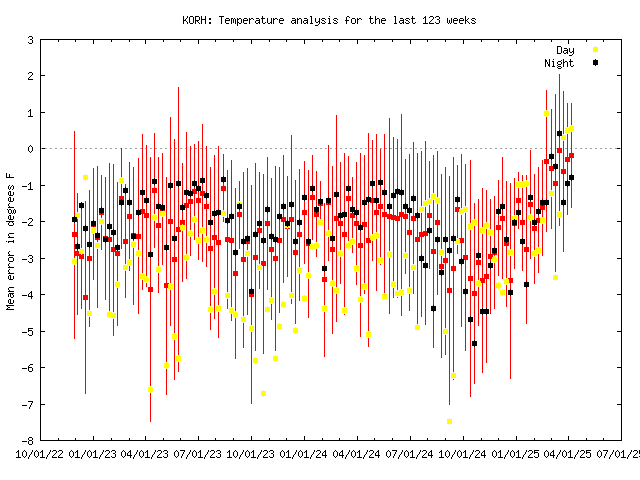
-
 2
2
-
 1
1
-
-
4 minutes ago, 40/70 Benchmark said:
Get the EURO suite to look like that and I'll grab the laptop.
Yep. Not biting unless other guidance latches on…but particularly the euro. GGEM and Ukie can do what they want but if GFS/Euro start agreeing then it’s a legit threat.
-
 4
4
-
-
20 minutes ago, CoastalWx said:
Whenever everyone else sells, we watch and wait. It’s a more active jet with residual cold.
Yep. esp in March....you get a lot more convection down south this month and things don't always play quite as "smoothly" on guidance as it does in the heart of winter. Still obviously maintaining a lot of skepticism on a big event, but I'm not dismissing it with this much lead time.
-
 3
3
-
-
31 minutes ago, CoastalWx said:
We haven't had a BM rain event on the sodomy check-list. Lets do it.
We got one last year in January I think.
-
13 minutes ago, Typhoon Tip said:
That D10 GGEM would be fun to see the 11th just for model shits and giggles - that was en route to becoming the biggest storm ever anywhere E of the planet Jupiter in the history of the solar system
Yeah that’s almost a juiced-look version of a Feb 2013 phase job. It’ll be either over DTW or Bermuda by verification time for sure…
-
 2
2
-
-
2 hours ago, Allsnow said:
While PF continues his 2015
Don’t think anyone is escaping the torching cutter next week. The slow decline starts for everyone by that point.
-
 2
2
-
-
EPS still has the 3/9 signal. Prob our last chance of anything significant outside of a rogue late season event.
-
 2
2
-
-
26 minutes ago, DavisStraight said:
We never got a direct blast, it always moderated by the time it got here.
Our cold shots this year were extremely mundane. I don’t even think we got below 0 once (I know the radiators near me did). Got close a couple times. One of the cold shots got NNE pretty good with the radiators. But outside of that we just rarely got anything from the “Montreal Express” trajectory that typically defines our deeper cold shots. Everything was from the west or even WSW at times. But that’s the type of pattern that really gets big cold down to the gulf states which is exactly what happened.
The only reason the winter felt cold was because it was compared to the last 2 winters and we did not get any true torches after that pre-New Years week. It was a lot of “seasonable cold” that rarely got interrupted and when it did, the mild-ups were quite short and weak.
-
 3
3
-
 2
2
-
-
28 minutes ago, Kitz Craver said:
How do you think SVT is looking for Thursday and the Saturday clipper the GFS is offering? Debating hitting one of the southern resorts, but it has to be worth it. Advance Tickets for my son and I are 300.00!!!
They prob grab a few in each event. I don’t know if they’ll get enough to cover some of the refrozen stuff that will inevitably happen this week…but I’m sure the groomed cruisers will be totally fine.
-
 1
1
-
-
47 minutes ago, ma blizzard said:
not expecting anything in my area but north of rt2 has a chance
A pasty inch or so wouldnt surprise me in ORH county....even near you. But yeah, best chance is def typical spots near and N of rt 2.
-
5 minutes ago, RedSky said:
If I remember correct it was somewhere in that time frame the NWS launched a project to study benchmark storms and nothing happened to analyze.
I’d never heard of that but that is a sick twist of irony. 86-87 was one of the few good winters in an otherwise crap decade in these parts. Had a decent number of storms near or just inside the BM. Then we went on hiatus for years…’87-88 was actually semi-decent (esp January) but it kind of shit the bed after early February.
-
5 minutes ago, Sey-Mour Snow said:
55-60 on local obs., 57 here with 85% pack or 3-6”
When looking closer, you can see the winds are stronger down in southern areas. Must just be mixing better overall on top of the usual latitude gradient in temps that is enhancing the difference.
-
3 minutes ago, Prismshine Productions said:
Then 93 sure as hell made up for it
Sent from my SM-S156V using Tapatalk
Dec ‘92 is the one that really broke the drought. Though it was frustrating along the coast.
-
 1
1
-
-
1 minute ago, 40/70 Benchmark said:
That't the date I mentioned yesterday....7th anniversary special?
Technically your jackpot was 3/13/18 but close enough.

If we could close the winter with one big dog (doesn’t even have to be HECS-style…just a solid 12”+ type event), it would def take it out of ratter territory considering the other factors (Holiday snow cover, almost continuous stretch of snow cover post-1/11 until later this week)
-
 3
3
-
-
What a torch in SE MA into parts of RI/CT. Wonder if there is a snow cover effect enhancing the gradient. Solid 10F warmer than 20 miles N or NW.
-
23 minutes ago, dendrite said:
Did Will move all of his snow piles around the ORH ASOS?
Went from 2F too warm for the last 4+ years to 3F+ too cold today.




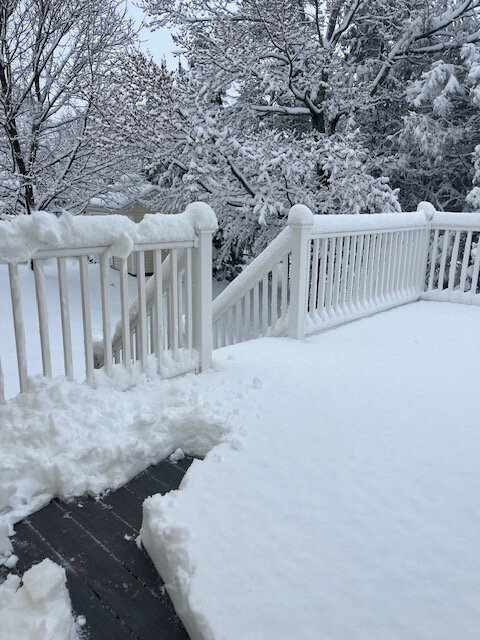
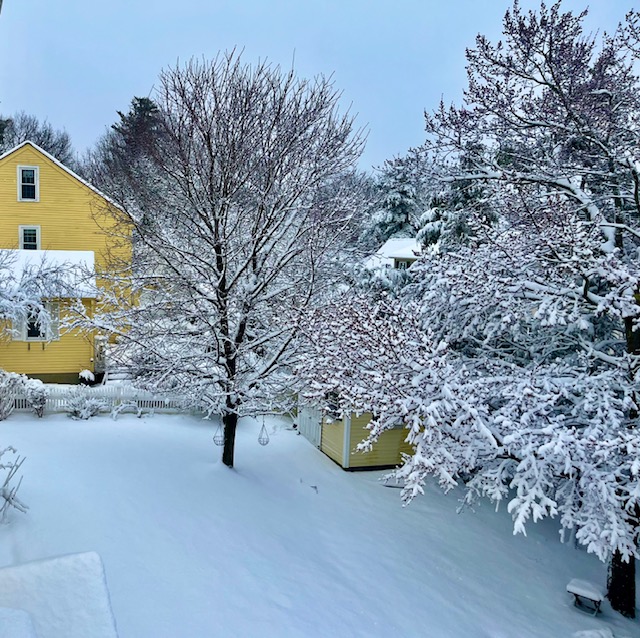
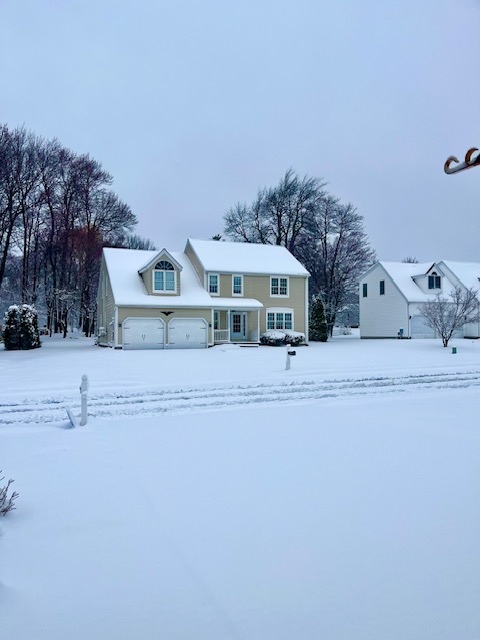
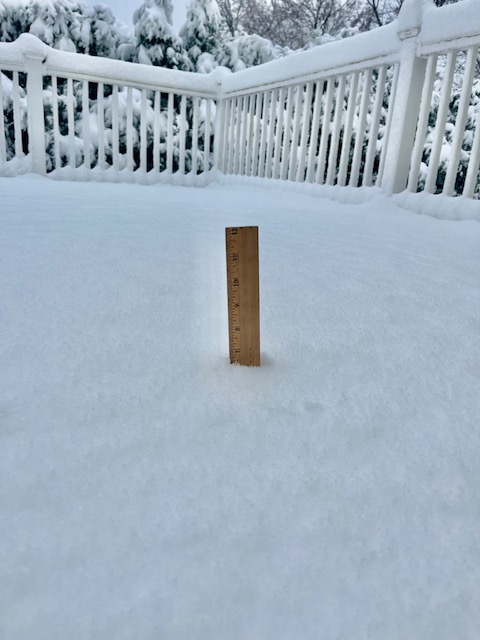
Napril 2025 Obs/Discussion!
in New England
Posted
That’s quite the ratio for mid April and a min temp of 32F….34” on 1.25 of liquid that one day. Wonder if they left the core boiling over the fire too long, lol